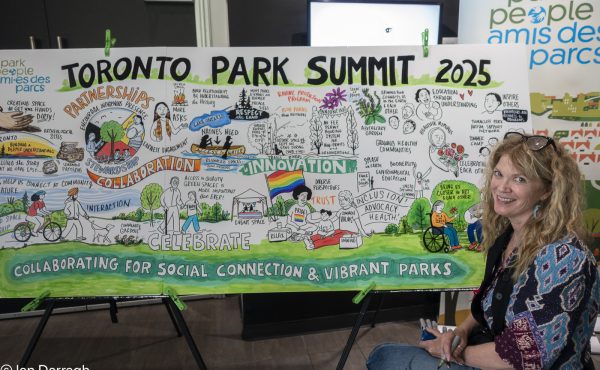The University of Toronto’s Centre for Environment is holding a conference called The Natural City May 31 – June 2, with Stephen Lewis as the keynote speaker. There are lectures on urban agriculture, disaster management, sustainable architecture success stories, and the role banks can play in forming a green city. From those I’ve talked to, this will be a great event for people with a keen interest in sustainable city deveolpment. From the website:
Many people perceive nature and cities to be separate entities. Despite some significant shifts in thinking in recent decades, the overriding perception still seems to be that environmental issues are principally concerned with plants, animals and pristine wilderness areas. On the other hand, human settlements are generally seen to be the exclusive domain of architects, planners and urbanists. Too often, nature is mythologized as benevolent and the city as evil, despite growing urbanization trends worldwide.
This conference presents an opportunity to challenge this view. Urban and natural environments are not necessarily conflicting notions but must be integrated at many different scales, for sustainable, healthy settlements to occur. As renowned anthropologist, Margaret Mead, argued years ago, just as hives are to bees and dens to foxes, cities can be equally natural moments in the development of human society, as long as ecological integrity is preserved.
A major focus for this meeting will be how to rethink foundational concepts and apply them to the sustainable development of natural, healthy cities on a global scale, from developing to developed worlds.
The overarching theme of the conference will be Success Stories. It is true that society can learn from its mistakes and we have made many in the field of environment. However, it is also the case that we can gain insights from our successes and it is our hope that the Natural City conference 2006 will help us all to move forward and build upon these accomplishments.




2 comments
Sounds great, except the $395 registration fee pretty much shuts out any interested people from the general public at large.
There is a discount for students and some have been able to get in free by volunteering for a total of 6-8 hours which can be done during lectures/presentations that are not at the top of your list…